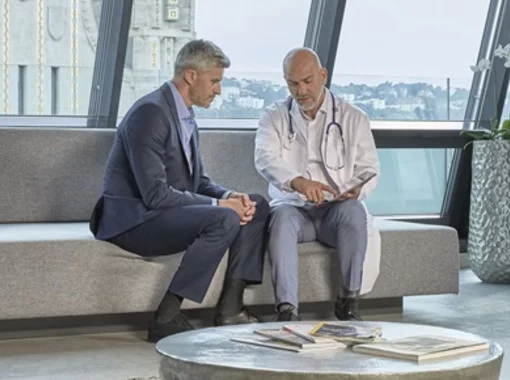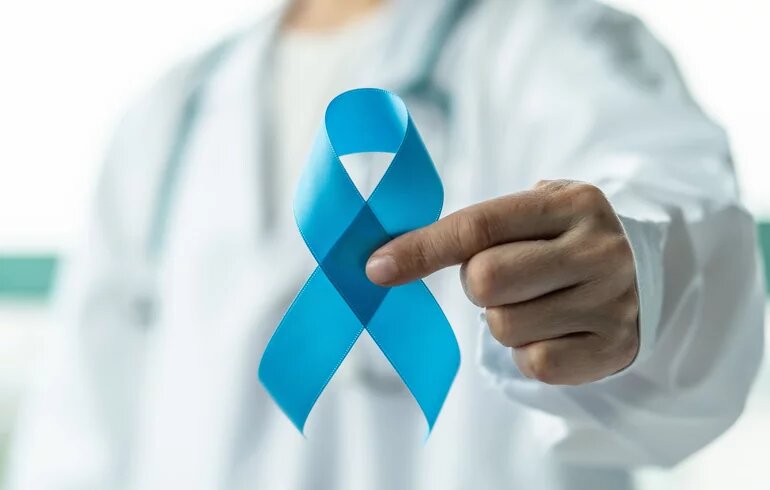Urology deals with the health, congenital and acquired disorders and diseases of the urinary tract (kidney, renal pelvis, ureter, bladder, urethra) and the male genitalia, as well as inflammatory and tumorous lesions of these organs.
We pay great attention to the prevention of diseases, especially the early diagnosis (inflammatory, malignant and benign tumors) and treatment of various prostate abnormalities. This provides opportunities for timely, effective treatment and successful recovery.
Many people still consider urological diseases to be a sensitive issue, hence they don't like to discuss it. However, these conditions are very common, and it is important to be aware of them: to this end, we will describe the typical conditions and their symptoms, and explain the urological examination and surgery to ensure you are fully informed about the procedure.
What urological services do we provide at our private hospital?
Specialist urological services
At our private urology department, we pay great attention to disease prevention, especially to the early diagnosis and treatment of a wide range of prostate disorders - inflammatory, benign and malignant tumors - to ensure timely and effective treatment and successful recovery.
Although many people consider that urological problems affect men only, they can occur in both sexes, as it deals with diseases of the urinary system - the kidneys, renal tract, bladder and urethra. It also includes problems and disorders of the male reproductive organs, including the testicles, epididymis, prostate, vas deferens and the penis.
Most common urological diseases:
- Urinary tract infections (UTIS)
- Kidney stones
- Benign prostate enlargement
- Prostatitis
- Erectile dysfunction
When should you see a urologist?
Many urological problems are easily treated if detected early, and early diagnosis is also very important in the treatment of a potentially more serious condition. It is therefore important to consult a specialist as soon as possible if you notice any changes in your urination habits, such as difficulty urinating, intermittent urination, changes in the urination arc or flow rate, or if you feel that you cannot completely empty your bladder every time you go to the toilet.
Consult our specialist urology department if you experience sexual dysfunction or urinary problems, if you have cramping pain in the lower back, or any discomfort or pain in the lower abdomen or around the perineum. Naturally, you will need to be examined if you experience bloody or cloudy urine, whether it is painful or not; if you have a rash or other skin condition or pain in the genitals, or if you notice a change in their shape or feel.
Don't delay if you notice or feel anything unusual or abnormal while washing yourself or self-examining.
In addition to the above, testicular complaints, pain, enlarged testicles or erectile problems and premature ejaculation may be signs of a urological problem in men, and regular screening is recommended for all men over the age of 40. Women should also visit a private urologist for recurrent gynecological complaints.
More information about our urological specialty >>
Urological surgeries
Our hospital offers both one-day and multi-day surgical care. Surgical operations are always preceded by a detailed and careful examination. The goal of the examination is to get the patient into the operating room in the best possible condition, so that the healing is faster and the number of complications is significantly reduced.
Our urology surgeries:
- Hydrocele (scrotal swelling) surgery
- Bladder tumor removal (TURBT)
- Cystoscopy
- Ureteral Double J catheterization
- Surgical circumcision
- TRUS biopsy (Ultrasound-guided prostate biopsy)
- Prostate resection (TURP)
- Renal catheterization
- Male sterilization
- Dorsal incision
- Varicocelectomy surgery
- Urethral slitting (urethrotomia interna)
- Spermatocelectomy surgery
- Genital condyloma removal surgery
- Transurethral incision of the prostate (TUIP surgery)
- REZÜM water vapor therapy
More information about our urological surgeries >>
Why choose Dr. Rose Private Hospital?
- Highly qualified specialists. In our urology department, we have highly skilled, experienced doctors and the latest diagnostic equipment.
- Personalized care for all our patients. We not only focus on medical history and family history of similar diseases, but also on the individual needs of the patient, and develop an appropriate treatment plan accordingly.
- An empathetic approach. From the first examination to the therapeutic period, we treat our patients with patience and always provide detailed and transparent information about the diagnosis and treatment options.
For all your urological questions, please feel free to contact the doctors at Dr. Rose Private Hospital.



